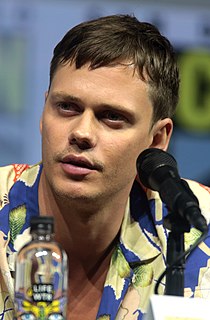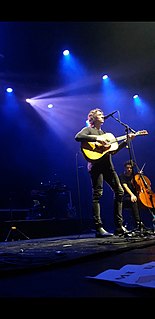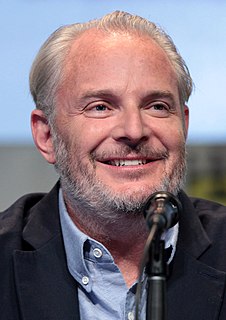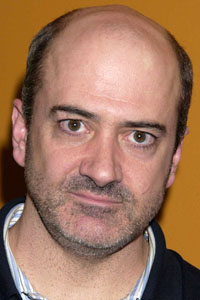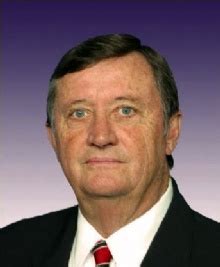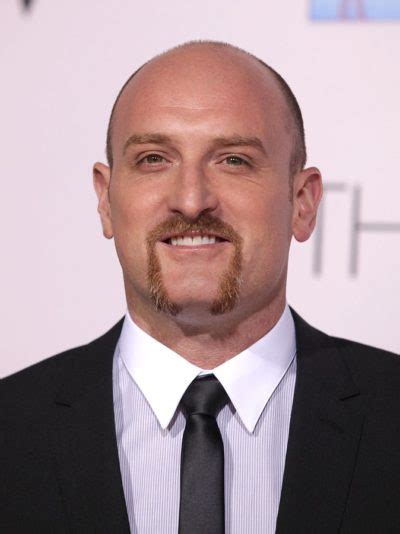A Quote by Bill Skarsgard
Normally, when you do a movie, you have those mundane days when it's like, 'Today is the scene where I get coffee.'
Related Quotes
I've begun to believe more and more that movies are all about transitions, that the key to making good movies is to pay attention to the transition between scenes. And not just how you get from one scene to the next, but where you leave a scene and where you come into a new scene. Those are some of the most important decisions that you make. It can be the difference between a movie that works and a movie that doesn't.
You gotta understand also that teenage kids just don't have the experience and the studio technique. I mean, in those days it wasn't electronic like it is today, where you can hit a drum and, you know, the engineer does it all. In those days, everything was live and you had to have decent sounds, and through the years you get to weed out what's bad and what's good.
It's like you might have some great scene that you love but for some reason - and you can't necessarily put your finger on it - the movie's not working or it seems slow or ponderous in some way, and even though it has your favorite scene in there, actually the favorite scene is the culprit. That's the painful thing about editing, is trying to locate those things that are holding the movie back and then having the guts to cut them. And it is painful to do it.
There were [in Wilson] a lot of clues in it that you don't normally get, you know, normally you use your imagination or whatever, you get some clues in the script, of course, but yeah, it was really helpful, and I really like the graphic novel. There's stuff in there, there's a couple things in there I really wanted to use that they couldn't get in the movie, but it's definitely, he's a unique guy, you know, I never read a character like this before.
It's really hard to get a coffee with someone. I have to call my agent, my agent calls their agent, their agent calls their manager, the manager calls back, the actor sends someone to the manager... then you get, 'Yeah, yeah, I'd love to have dinner at six,' and all I wanted was coffee! It can take, like, six days to get coffee.
I have the barn, it's just kind of like a studio. Almost all artists have la studio to work in, and that's really what it is. A place to get away. I'll spend maybe four days out there if I can, just completely immersed - like where I don't bathe or brush my teeth for a few days, just get up and make coffee and experiment until the sun goes down.
When I first started working on movies as a production assistant, we were shooting 65, 75, 85 days. I mean, granted some of those things were "Godzilla," "Deep Impact," and those kinds of things, but these days it's like 30-35 days or 40-45 days and you just feel like you're humping trying to get everything done. It's like "Move on, move on, move on!" That's not the way to get the best performances or the most interesting shots. You have to constantly balance schedule and quality of work. For me, that's the biggest thing.
